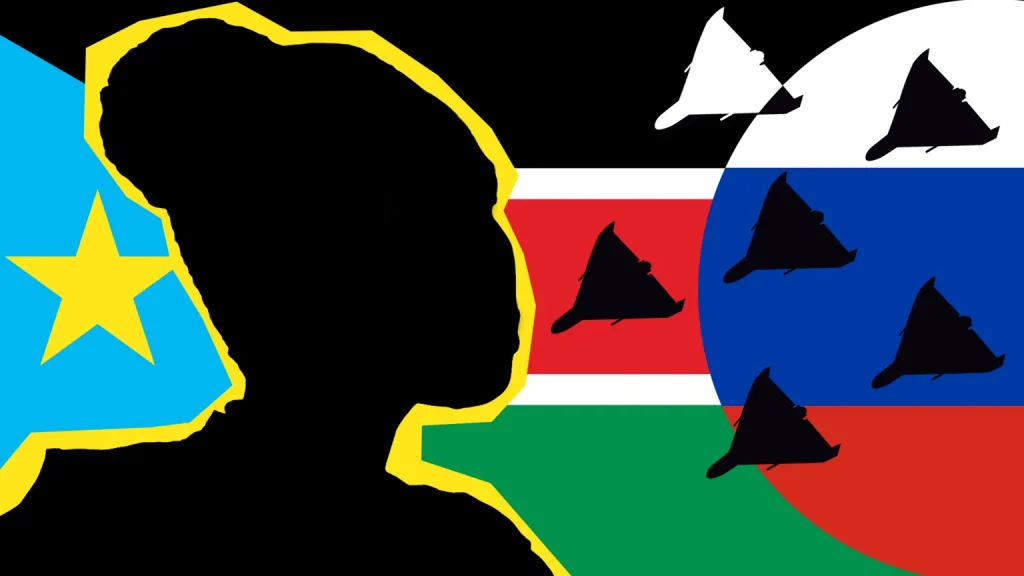Adau, a 23-year-old woman from South Sudan, shared her experience after joining the “Alabuga Start” programme — a Russian recruitment initiative that advertised opportunities in logistics, hospitality, and technology. She says what began as a promise of skill-building quickly turned into dangerous factory work connected to Russia’s drone production.
“We got our uniforms, not even knowing what we were going to do,” Adau recalled. “From the first day, we were taken to the drone factory.”
The Alabuga Special Economic Zone, located in Tatarstan, has been identified by several independent analysts as one of the main sites producing drones used by Russia in its war against Ukraine.
Adau says she and others were made to work under unsafe conditions, using chemicals that caused burns on their skin. “When I got home, my skin was peeling,” she said. “We wore protective gear, but it didn’t help.”
She added that workers were forced to sign non-disclosure agreements and that many were unable to leave because their passports were seized after a Ukrainian drone strike hit their hostel in April 2024.
While Alabuga officials denied claims of deception and poor working conditions, the South African government launched an investigation in August after reports that young women from across Africa were being recruited under false promises.
The women say they were paid far less than the agreed amount — around $100 instead of the promised $600 per month — with multiple deductions for accommodation, language classes, and other fees.
For Adau, the experience was devastating. “It felt horrible having a hand in constructing something that is taking so many lives,” she said.
Human rights groups have urged African governments to issue stronger warnings to citizens about recruitment offers from the Alabuga programme, describing it as a case of “modern exploitation under the guise of education.”



